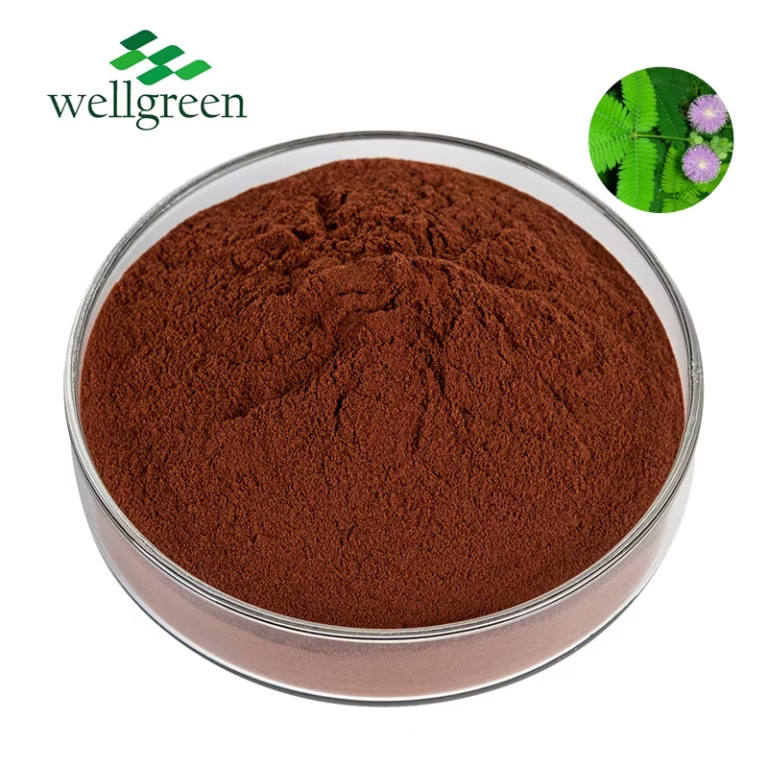Mimosa Hostilis: A Sacred Plant for Indigenous Cultures
Mimosa Hostilis: A Sacred Plant for Indigenous Cultures
Blog Article

Mimosa hostilis is a venerable plant deeply ingrained in the traditions of many Indigenous cultures across South America. For centuries, it has been employed by indigenous communities for its comprehensive spiritual and medicinal applications. The root bark, known as kahie, is particularly revered for its entheogenic effects, believed to unveil profound insights that facilitate transformation.
Through traditions, the plant read more spirit of Mimosa hostilis is invoked, guiding individuals on a quest of self-discovery and connection with their inner selves. The knowledge about this sacred plant has been shared through generations, preserving the rich cultural heritage and knowledge of these communities.
Delving into MHRB Extract: The Mysteries of Mimosa Hostilis
Mimosa hostilis, a tropical plant indigenous to the South American rainforests, has captured the attention of both traditional healers for centuries. This intriguing species harbors within its roots a potent substance known as MHRB, which has gained significant recognition in recent times.
MHRB extract is celebrated for its benefits, often associated with spiritual exploration. Ancient practices suggest a long history of MHRB use in healing ceremonies.
- Experts continue to explore the active compounds of MHRB, seeking to reveal its full spectrum of effects.
- The complexities surrounding MHRB usage require awareness. It is essential to consult with knowledgeable individuals before engaging in any practices involving this powerful compound.
Exploring the Ethnobotanical Uses of Mimosa tenuiflora
Mimosa tenuiflori, commonly acknowledged as "the acacia", holds a significant position within the ethnobotany knowledge of diverse communities. Its multifaceted properties have been harnessed for centuries in ancestral medicinal practices, as well as in ceremonies. The roots of this remarkable plant possess a rich spectrum of bioactive constituents believed to exhibit medicinal effects.
From curing ailments like wound infections to promoting spiritual awareness, Mimosa tenuiflora has long been revered for its profound influence on human health.
Mimosa Hostilis Root Bark Chemistry and Pharmacology
Mimosa hostilis root bark contains a complex chemical profile, primarily known for its significant concentrations of alkaloids. Among these, copyright and THH are particularly important. These substances possess a range of pharmacological activities, including hallucinogenic effects. The bark contains various alkaloids, such as alpha-harmine, which may contribute to its comprehensive pharmacological profile.
The traditional uses of Mimosa hostilis root bark include a range of medicinal purposes, particularly in native communities. However, it is crucial to understand that scientific research on the efficacy of these uses remains limited.
Harnessing the Power of copyright with Mimosa Hostilis
Mimosa hostilis, a tree native to South America, has captured the interest of researchers and individuals alike for its potent alkaloids, particularly dimethyltryptamine, or copyright. copyright is a powerful copyright substance known for producing intense altered states of consciousness. By consuming the bark of Mimosa hostilis, one can access the realms of copyright-induced experiences. It is crucial to remember that copyright is a strong substance and should be treated with reverence.
- Ethical use is paramount, and researching from experienced individuals or knowledgeable sources is highly advised.
- The pathway of copyright can be both insightful but also potentially challenging. It is important to prepare both mentally and physically for the possibilities that may arise.
copyright from Mimosa hostilis presents a unique opportunity to delve into the depths of consciousness, potentially leading to spiritual growth and awareness.
Ethical considerations Using Mimosa Hostilis
The utilization of Mimosa hostilis for personal purposes raises a myriad of moral questions. While some argue that its historic significance warrants respect and tolerance, others warn its use due to potential negative consequences. It's crucial to evaluate this complex issue with thoughtfulness, taking into account the religious contexts and potential implications. A nuanced perspective is essential for navigating the ethical nuances surrounding Mimosa hostilis.
Growing Mimosa Hostilis: A Guide for Growers
Embarking on the journey of cultivating Mimosa Hostilis can be a fulfilling experience for the dedicated grower. This fascinating plant, endemic to tropical regions of the Americas, has earned significant recognition in recent years due to its distinctive properties. Before your cultivation mission, it is crucial to grasp the specific requirements this plant demands to thrive.
- Guaranteeing adequate sunlight is paramount for healthy Mimosa Hostilis growth. These plants prosper in direct sunlight, ideally receiving a minimum of six hours per day.
- Maintaining well-drained soil is essential to prevent root rot, a common ailment that can destroy your plants. A mixture of clayey soil with composted matter is suitable.
- Frequent watering is necessary, but be mindful not to overwater your Mimosa Hostilis. Allow the top inch of soil to dehydrate before providing another irrigation.
The Shamanic Traditions Surrounding Mimosa Hostilis
Deep within the timeless forests of South America, the shrine of healing have been honored for generations. Among these potent allies is Mimosa Hostilis, a mysterious plant revered by the shamanic traditions of indigenous peoples. It contains within its leaves a river of power, guiding spirits on their journeys into the unseen.
The traditionalshamans understand that Mimosa Hostilis is not simply a medicinal agent; it is a bridge between realms, connecting us to the universal energies that weave all of creation.
Confronting Legal Problems with Mimosa Hostilis
The legal status of mimosa hostilis varies greatly from one location to another. It means that the acceptability of possessing, using, or cultivating this plant depends on your specific area.
Furthermore, laws and regulations pertaining to mimosa hostilis are constantly evolving. It is therefore essential that you carefully research the current legal framework in your locality.
- Seeking advice from a legal professional who specializes in plant-based substances laws is highly advised.
- Staying informed about any amendments to the law can help you stay clear of any potential legal problems.
Mimosa Hostilis and Spiritual Exploration: A Journey Inward deepening
The ancient wisdom whispered through the rustling leaves of Mimosa Hostilis calls to voyagers on a inner quest. Embarking upon this path is to reveal hidden dimensions within, where the veil between worlds thinns. It's a powerful experience that enlightens the soul, revealing truths sleeping beneath the surface. As you blend with the essence of this sacred plant, be prepared for insights that reshape your perception.
- Accept the unknown with an open heart and a inquiring mind.
- Surrender all expectations and allow yourself to be guided by the current.
- Remember, this is a quest of self-discovery. Have faith in your own intuition.
The wisdom gained through Mimosa Hostilis vibrates long after the experience has passed. It is a gift that can alter your life in profound and permanent ways.
Understanding the Dangers and Rewards of Mimosa Hostilis
Mimosa hostilis is a plant native to South America, gaining increasing attention for its potential pharmacological properties. While it contains valuable compounds like copyright, responsible for its psychoactive effects, it's crucial to approach this plant with awareness. Understanding both the hazards and the advantages of Mimosa hostilis is essential for safe and informed use. Potential risks can include psychological distress, emphasizing the need for thorough research, responsible consumption, and a secure environment.
- It's important to consult with a healthcare professional before using Mimosa hostilis or any products derived from it.
- Proper dosage is crucial to minimize potential side effects.
- Be aware of the legal status surrounding Mimosa hostilis in your locality.
- Always prioritize safety and well-being when exploring the use of this plant.
 Report this page
Report this page